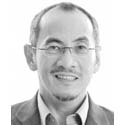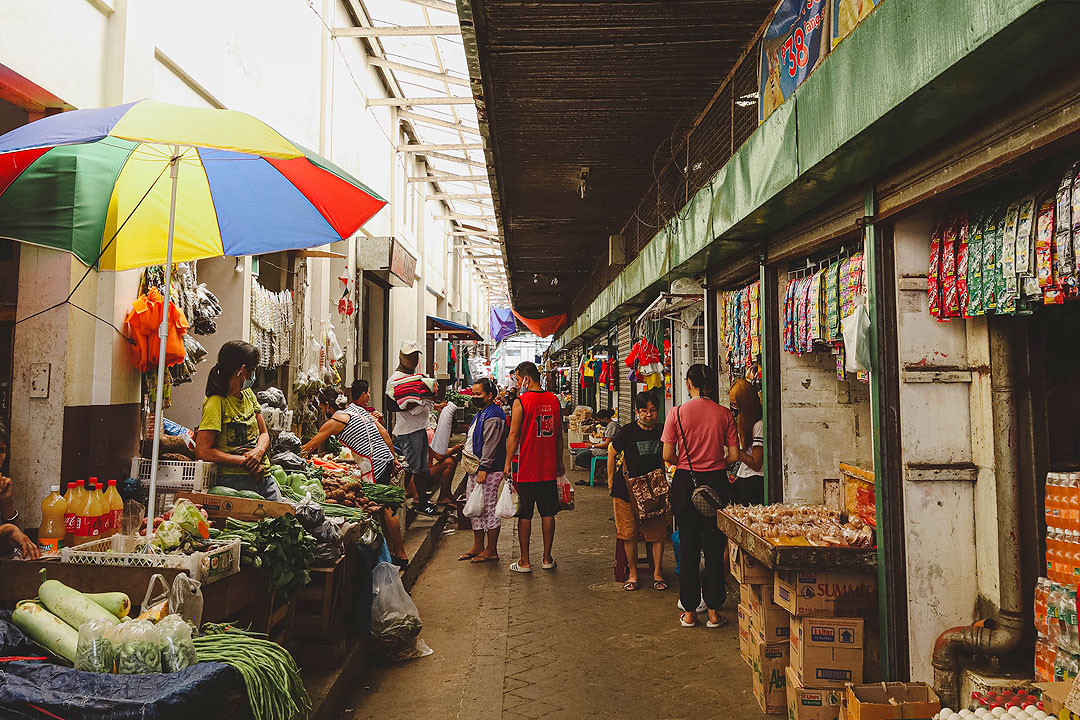Rule of law, authoritarianism, and civil society

Introspective
Romeo L. Bernardo

The Asia Liberty Forum interview with Professor Raul Fabella
(Part 2)
(This is the second part of the interview with Prof. Raul Fabella conducted by Romeo Bernardo that was the culminating activity of the “Asia Liberty Forum” in Manila on Sept. 29-30, presented by The Atlas Network (https://www.atlasnetwork.org/) and the Foundation for Economic Freedom or FEF (https://www.fef.org.ph/). Through panel discussions, break-out sessions, the Asia Liberty Awards Dinner, and other events, attendees heard from leaders from across the continent about the challenges and opportunities ahead for liberal democracy. The second part of the interview follows below.)
Romeo Bernardo (RB): Rule of law is almost always cited as a lynchpin of economic freedom. For example, the index of the Heritage Foundation lists it as No. 1, followed by government size, regulatory efficiency and market openness.
The UN Charter and the Universal Declaration of Human Rights, defines such to include right to life and liberty, freedom from slavery and torture, freedom of opinion and expression, the right to work and education, and many more, without discrimination.
Your thoughts please on such a broad definition of human rights vs. the narrower one espoused in writings of some authors — and practiced in some authoritarian regimes, especially ones which have been quite successful in bringing millions of their people out of poverty, trading off limitations on political liberties — e.g. China, Vietnam. Arguably even Singapore.
RF: Rule of Law and inclusion/inequality: Acemoglu and Robinson’s monumental opus (Why Nations Fail) argues that economic liberalization in the form of thin definition of rule of law (protection of property rights and enforcement of contracts) is the lynchpin of long-term sustained growth. Thus, economic liberalization is conducive to improved inclusion (as poverty reduction shown in the People’s Republic of China [PRC]) as growth reduces poverty (Burnside and Dollar, 2000). However, the reduction in poverty incidence does not preclude the violation of the thick definition of rule of law as including respect for basic human rights (the treatment of Uighurs in PRC comes to mind).
Barro and Salai-Martin (2004, Economic Growth) were the first to point out that whereas economic liberalization significantly associates with economic growth, political liberalization has at best a little and negative association. This suggested a tradeoff and a spirited backlash. In the new world of the 21st century, well-being has many more dimensions than monetary income: environmental sustainability, shared well-being and resilience, etc., all of which can be attenuated on the way to higher per capita.
The tension spikes when the tradeoff is couched in terms of basic human rights: Did the so-called social contract to attenuate political space in exchange for economic space pay off? Depends upon the criteria of validity. If economic space means economic convergence with the high-income economies and lower poverty incidence, East Asia and PRC are evidence of its payoff.
Was it worth the lives lost or crippled? Was the Tiananmen Square Massacre in China a fair price to pay for 600 million graduating out of poverty? This is a question of the Sphinx!
There is, however, a strong evidence-based consensus that the race to the top of the per capita income ladder has scarred the environment, sometimes irretrievably; that climate change has a human agency footprint. Incidentally, the scars are worse for the previous socialist bloc than for market economies. Social unrest can follow norm violations in these other dimensions despite or because of rising income which also changes public values and perception. Finally, the carbon footprint of energy-impoverished Filipinos is so small you would need a microscope to see it.
RB: In recent years, there seems to be a drift away from liberal regimes that espouse market-based solutions (economic freedoms) towards authoritarian regimes from both the right and the left, everywhere globally. To what extent is this being driven by income inequalities and the failure of governments to address poverty and create jobs with globalization and tech change? Notable examples in developing countries are: to the right Brazil, and to the left, Colombia, Chile, Bolivia. (In the west, the USA is poster boy No. 1, and from the news earlier this week — Italy seems to have turned neo-Fascist!). Is Philippines at any risk at risk of being next? What conditions promote these?
RF: There is a great deal of debate and interest on how Francis Fukuyama (End of History) — that liberal democracy is the future of humanity — got it wrong. Is income inequality the culprit: possibly, but more salient in the literature is the loss of accustomed and expected entitlements (falling wages, potential loss of jobs from new entrants, threats to accustomed cultural matrix and social contracts from growing diversity, etc.), which can happen with or without growth in inequality. James Scott (Moral Economy of the Peasants, 1976) noted that peasants in East Asia tended to resort to violence when their accustomed standards (food intake, say) are attenuated, especially after adverse climate and harvests and the shares of the landowners do not adjust to accommodate as dictated by the moral economy. So, both inequality cum rigidity and broken expectations are indicted.
RB: I like much of what you have written in the past on the role of civil society and organizations like FEF. What can we in FEF (and similar like-minded institutions) do to help improve social welfare and preserve economic freedoms? How do we help ensure that we don’t suffer the reversals and drift to illiberal regimes, both left and right, as had happened in other developing countries?
RF: On the role of Civil Society and incremental market liberalization reforms: Most reform battles in the Philippines involve market liberalization. The reflex response of Philippine political actors to economic difficulties is to find scapegoats among market actors such as the profiteers, oligarchs, foreign investors and speculators. The normal state response is to ban or restrain market exchanges and let government take over: thus the old NFA (National Food Authority, a state monopoly in imports of rice), the OPSF (the Oil Price Stabilization Fund, a state monopoly in imports of petroleum), ban on land ownership over five hectares (CARP, the Comprehensive Agrarian Reform Program), ban on mining and forestry activities; the Agri-Agra law (restraint on bank allocation), blam[ing] oligarchs for nature-triggered water shortages, etc. The Philippine economic saga from the 1990s is one of slow and spasmodic extrication from the straitjacket the state has imposed on the market.
On FEF engagements: Economic liberalization is where civil society has had the most impact. FEF has been leading the charge to economic liberalization: rice import liberalization, PSA (amended Public Service Act) law allowing foreign participation in more economic activities, free patent law allowing faster grant of titles to patent holders and now allowing consolidation by lifting the five-hectare ownership ceiling and facilitating farm consolidation in the food production sectors. As in Deng’s China, market liberalization is very inclusive in the sense of poverty reduction although it may raise income inequality. The advantage of FEF over other business clubs (MAP or Management Association of the Philippines, MBC or the Makati Business Club, etc.) is that its membership/fellows is not limited to representatives of businesses and firms but also include academics, independent researchers, and public intellectuals.
Note: (i) the relationship between tech revolution/social media and polarization/inclusion is murky and already heavily covered and discussed in many other local and global fora; added insight may be hard to offer; and, (ii) the response to social cost of illiberal politics and economy is imbedded in the discussion above.
RB: Economic freedom metrics typically include size of government. As a former Finance undersecretary, I have often wondered whether this is appropriate for a developing country like the Philippines with low tax to GDP ratios and under invests in public goods, especially education and health? In our case we have slipped to the bottom in global rankings on literacy and numeracy, and, not coincidentally, among those who spend least for basic public education. What do you think?
RF: Barro and Salai-Martin also used size of government as regressor for growth and found that the sign of association is negative. Their interpretation was that it was a proxy for corruption: the more government the more corruption. This interpretation jibes with the weak institution narrative: weak governance tends to throw money and government administration at perceived problems leading to higher government budgets, waste, and corruption. And the allocation of these state resources is skewed towards the squeakiest wheels, fast burn explosions that threaten Armageddon now.
Unfortunately, neglect of education and human capital infrastructure is a slow burn issue and gets the least attention. And when allocation is increased for education, it supports the same tired formula: more classrooms, more teachers, and more textbooks which result in the same more illiteracy. V. Fabella (2017, “Political-Economic Determinants of Education Reform: Evidence and Interest Group and Student Outcome,” European Journal of Political Economy) has shown that in the battle for reforms in education, access reforms (more classrooms and textbooks) normally trump quality reforms (better trained and motivated teachers) due especially to the opposition of the teachers’ union. In our case, a mortal sin: we can never access exam results of national high school exams to compare quality of high school education outcomes.
RB. I much enjoyed and learned from your book Capitalism and Inclusion Under Weak Institutions that came out in 2018. It was also the subject of our FEF Paderanga Valera lecture that year. Would you care to talk about it in the remaining time we have?
RF: On Capitalism and Inclusion: My thesis in the book is that under weak institutions, a greater role of markets is more inclusive defined as poverty incidence. This flies in the face of Piketty (2011) who showed that capitalism or market economics in affluent well-run economies militates against inclusion defined as income inequality. For low-income countries, poverty incidence is the more compelling metric of success. Poverty incidence in the Philippines is highest in the rural areas where the government has effectively vetoed the role of markets for land and finance.
Romeo L. Bernardo was finance undersecretary from 1990-1996. He is a trustee/director of the Foundation for Economic Freedom, the Management Association of the Philippines, and the FINEX Foundation. He is the principal Philippine Adviser of Globalsource Partners (globalsourcepartners.com). He also serves as a board director in leading companies in banking and financial services, telecommunication, energy, food and beverage, education, real estate, and others.
